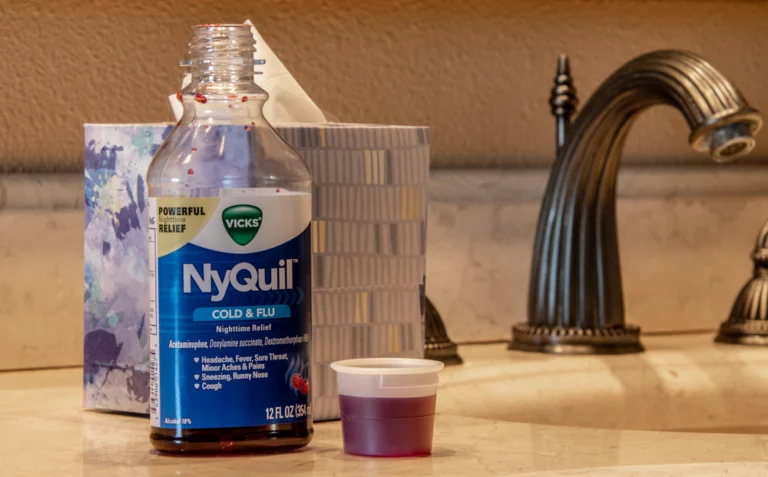Embarking on the journey toward recovery from substance abuse can feel overwhelming and intimidating, especially when facing the challenges of addiction alone. However, substance abuse counseling provides an invaluable source of support, guidance, and structure for individuals striving to break free from dependency and reclaim control over their lives.
By offering evidence-based therapeutic techniques, personalized treatment plans, and a compassionate, nonjudgmental environment, counseling helps individuals address the root causes of their addiction, develop healthy coping mechanisms, and build a strong foundation for long-term sobriety.
Understanding what to expect from substance abuse counseling can ease anxieties, set realistic expectations, and empower you to fully engage in the transformative process. Whether you’re considering counseling for yourself or a loved one, knowing how it works—from initial assessments to ongoing therapy sessions—can help you make informed decisions about your recovery path. Professional guidance not only enhances the healing process but also equips you with the tools needed to navigate triggers, repair relationships, and cultivate a fulfilling, substance-free life.
This comprehensive guide will walk you through every aspect of substance abuse counseling, including the different therapeutic approaches used (such as cognitive-behavioral therapy, motivational interviewing, and group counseling), the role of counselors in fostering accountability and growth, and how treatment is tailored to meet individual needs.
Additionally, we’ll explore how counseling integrates with other recovery resources, such as support groups, medication-assisted treatment, and holistic wellness practices. By addressing common questions and concerns, this guide aims to demystify the counseling process, providing clarity and confidence as you take the first—or next—step toward lasting recovery.

Essential Aspects of Substance Abuse Counseling
Understanding the Role of Counseling in Recovery
Substance abuse counseling plays a pivotal role in the recovery process by providing structured support, evidence-based therapies, and personalized strategies to help individuals overcome addiction. Through individual and group sessions, counselors help clients explore the underlying causes of substance use, develop healthier coping mechanisms, and rebuild their lives with sustainable, long-term sobriety in mind.
Counseling also fosters accountability, emotional healing, and relapse prevention, ensuring that individuals are not just abstaining from substances but actively working toward a healthier, more fulfilling future. By integrating various therapeutic approaches, counseling addresses the physical, emotional, and psychological aspects of addiction, making it a cornerstone of effective recovery.
Purpose and Goals
Substance abuse counseling aims to help individuals overcome addiction, develop coping mechanisms, and rebuild a healthy lifestyle. Its primary goal is to address the underlying causes of substance abuse, providing tools and strategies for sustainable recovery.
Types of Counseling Available
Counseling comes in various forms, including individual therapy, group therapy, family therapy, and cognitive-behavioral therapy. Each format offers unique benefits tailored to different aspects of recovery.
What to Expect from Your First Counseling Session
Your first substance abuse counseling session is designed to establish trust, assess your needs, and create a foundation for your recovery journey. During this initial meeting, your counselor will likely ask about your history with substance use, personal challenges, and goals for treatment. This session is also an opportunity for you to ask questions, discuss any concerns, and understand the counseling process.
While it may feel intimidating at first, remember that this is a judgment-free space focused on your well-being. By the end, you and your counselor will begin developing a tailored plan to guide your path toward healing and sobriety.
Initial Assessment
The first step in substance abuse counseling involves an initial assessment where the counselor gathers information about your history, substance use patterns, and any co-occurring mental health issues.
Building a Therapeutic Relationship
Establishing trust and rapport with your counselor is crucial. This relationship provides a safe space for open communication and effective support.
Goal Setting
Early sessions often involve goal-setting, where you’ll work with your counselor to identify short-term and long-term objectives for your recovery journey.

Components of Effective Substance Abuse Counseling
Developing a Personalized Treatment Plan
Every individual’s journey through addiction and recovery is unique, which is why substance abuse counseling focuses on creating a personalized treatment plan tailored to your specific needs, strengths, and goals.
Your counselor will collaborate with you to assess the severity of your substance use, identify underlying triggers or co-occurring mental health concerns, and determine the most effective therapeutic approaches—whether cognitive-behavioral therapy (CBT), motivational enhancement, trauma-informed care, or other evidence-based methods. This plan evolves as you progress, ensuring flexibility to address new challenges and milestones. By prioritizing your recovery path, this structured yet adaptable strategy maximizes your chances of long-term success and a healthier, substance-free life.
Tailored Approaches
Counseling plans are tailored to meet the individual’s specific needs, considering personal circumstances, preferences, and any unique challenges they face.
Incorporating Holistic Practices
Many programs integrate holistic practices, such as mindfulness and meditation, to complement traditional counseling methods.
Skill Building and Coping Strategies
A crucial component of substance abuse counseling involves developing practical skills and healthy coping mechanisms to navigate triggers, stress, and emotional challenges without relapse. Through evidence-based techniques like cognitive-behavioral therapy (CBT), mindfulness practices, and distress tolerance training, you’ll learn to recognize destructive thought patterns, manage cravings, and respond to difficult situations with resilience.
Your counselor will work with you to strengthen communication skills, emotional regulation, and problem-solving abilities—essential tools for maintaining sobriety in daily life. These strategies not only support recovery but also foster personal growth, empowering you to build a fulfilling life beyond addiction. By mastering these skills, you create a sustainable foundation for long-term wellness and self-empowerment.
Developing Coping Mechanisms
Counseling focuses on equipping individuals with practical skills to manage triggers, handle stress, and prevent relapse.
Behavioral Modifications
Through exercises and homework assignments, individuals learn to identify and modify harmful behaviors that contribute to addiction.
Peer Support and Family Involvement
Group Therapy Benefits
Group therapy provides peer support, fostering a sense of community and shared experience, which is crucial for many individuals in recovery.
Family Therapy
Involving family can enhance understanding, improve communication, and help rebuild relationships strained by substance abuse.

Substance Abuse Counseling in Knoxville
Local Resources and Expertise
Substance abuse counseling extends beyond individual sessions by connecting you with valuable local resources and specialized expertise to strengthen your recovery network. Your counselor can help identify community-based support groups, outpatient programs, medical services, and other regional treatment options tailored to your needs. Many areas offer unique recovery resources—from sober living homes to vocational training programs—that address the practical challenges of rebuilding your life.
By leveraging these local assets alongside professional counseling, you gain access to a comprehensive support system rooted in your community’s specific strengths. This localized approach ensures you receive culturally relevant, accessible care while fostering connections that can sustain your long-term recovery journey.
Knoxville Counselors and Facilities
Knoxville hosts a number of reputable facilities, such as the Knoxville Recovery Center, staffed with experienced professionals trained to offer comprehensive counseling support tailored to the local community.
Community Support
Local groups and meetings provide additional support, facilitating continued healing and connection within the community.
Navigating Financial and Accessibility Concerns
Insurance and Payment Options
Many counseling services work with various insurance plans and offer sliding scale fees to accommodate financial constraints, making counseling more accessible.
Transportation and Accessibility
Some centers provide transportation support to ensure clients can attend sessions consistently.
FAQs About Substance Abuse Counseling
How long does substance abuse counseling last?
The duration of substance abuse counseling varies depending on individual needs and progress. Some individuals may benefit from short-term therapy, while others may engage in counseling for several years.
Is substance abuse counseling effective?
Yes, substance abuse counseling is effective for many individuals. It provides essential support and guidance, helping individuals understand the root causes of their addiction and develop strategies for maintaining sobriety.
What if I feel uncomfortable during counseling sessions?
Feeling uncomfortable initially is common as you discuss personal issues. However, open communication with your counselor can help address these feelings and adjust the counseling approach to better suit your comfort level.

Embracing the Substance Abuse Counseling Journey
Substance abuse counseling serves as a lifeline for those seeking to break free from the cycle of addiction, offering not just clinical support but a pathway to rediscovering purpose and rebuilding relationships.
The journey through counseling is often challenging yet deeply rewarding, as individuals develop new perspectives, heal emotional wounds, and reclaim their autonomy. What begins as a commitment to sobriety frequently blossoms into broader personal transformation—improved self-worth, healthier relationships, and the ability to face life’s difficulties with resilience.
Recovery is not a solitary endeavor, and the right counseling partnership can make all the difference. Whether you’re taking the first step or seeking to strengthen an existing commitment to sobriety, professional support provides structure, accountability, and evidence-based strategies tailored to your unique needs. Counseling equips you not only to resist cravings but to cultivate a life where fulfillment and clarity replace dependence.
At Knoxville Recovery Center, we understand that every recovery story is distinct, and we’re dedicated to helping you write yours with confidence. Our team offers compassionate, individualized care designed to address the physical, emotional, and psychological dimensions of addiction.
If you’re ready to begin—or continue—your journey toward healing, we invite you to take that next step and contact us today. Call us at 865-830-3967 to speak with an addiction specialist who can guide you toward the resources and support you deserve. Your future self will thank you.








